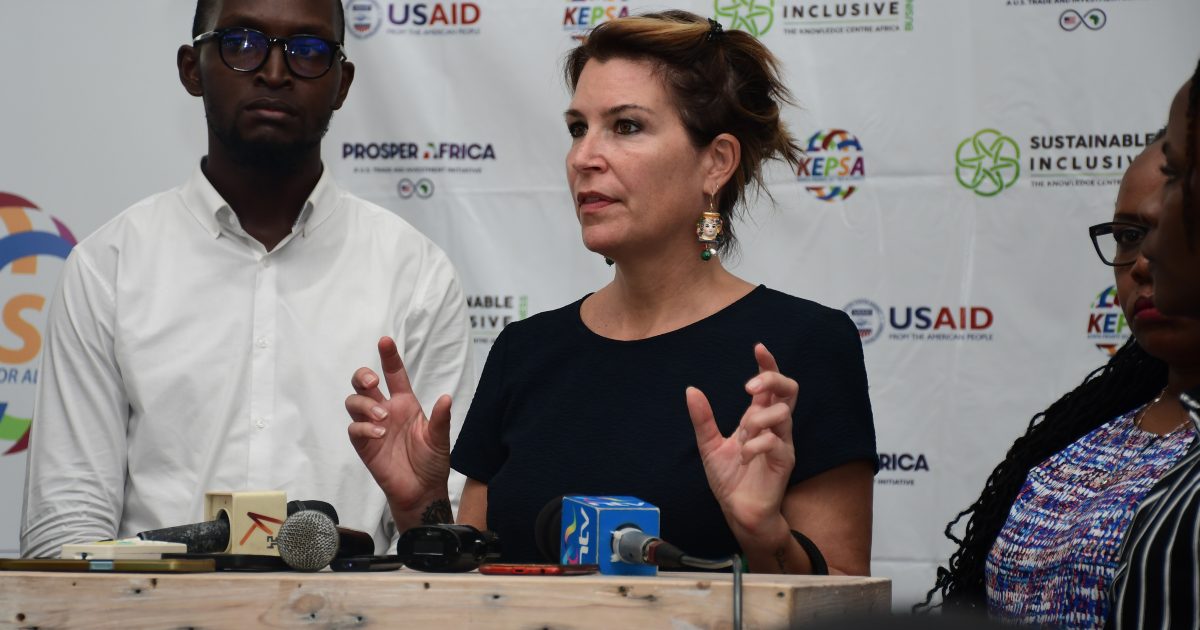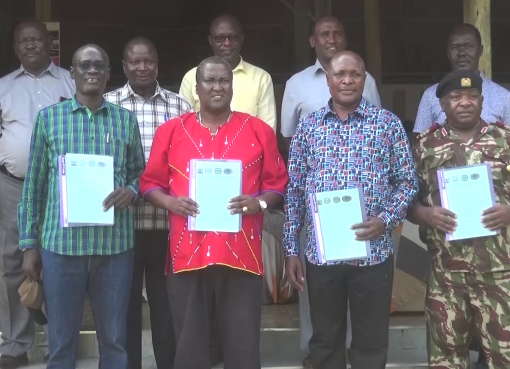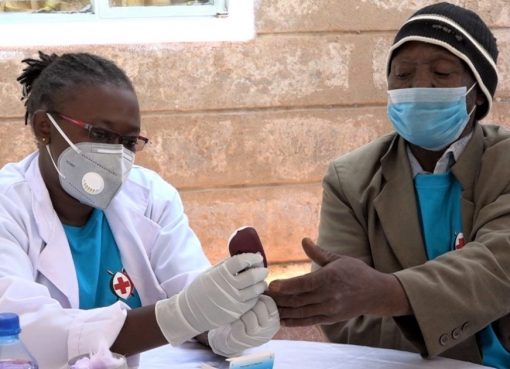The Kenya Private Sector Alliance has called for the fast-track of the gazettement of the Extended Producer Responsibility (EPR) and 100 percent implementation of the ban on the single-use plastic carrier bag which is estimated to be at 80 percent.
EPR is an environmental policy approach that establishes a producer’s accountability for the post-consumer phase of a plastic product’s life cycle.
During their address at Ratna Square, Alex Kubasu, a representative of the World Wide Fund (WWF) emphasized the urgency of the bill that has already been presented to the parliament, stressing the critical need for its gazetting to empower effective implementation on the ground to mitigate further environmental pollution.
KEPSA has held its 2nd sensitization workshop endeavoring to assess more collaboration with both the National and County Governments to ensure that this bill can be implemented most effectively.
This assessment involves exploring avenues for cooperation, establishing clear lines of communication and responsibilities of producers, and fostering a participatory approach that incorporates input from all stakeholders.
“Our main plea to the government as we proceed with the Extended Producer Responsibility bill is to prioritize robust regulation,” Kubasu said.
He noted that currently, within the Sustainable Management Act, there are two to three provisions that allow the National government to implement EPR. However, their emphasis lies in ensuring that these provisions are comprehensive and effective.
“We advocate for clear guidelines and enforcement mechanisms to hold producers accountable for the lifecycle of their products, thereby promoting a circular economy and environmental sustainability,” he extended.
Karin Boomsma, the Project Director, KEPSA expressed her belief that the EPR can make our Country deal with waste management more efficiently, be clear on what products to be used for, and if they are necessary.
She emphasized the need to create a uniform, harmonizing system to make sure that the products used have a value to reuse, recover, or recycle.
Boomsma noted that they represent the Private Sector’s commitment to ensuring that EPR regulations are deployed as they should be across the country.
She said that they have supported the process by having a dialogue with the government to ensure that the policy that is being developed, is implementable.
It was noted that the pace to gazette the regulation is not too slow and not as fast but on track with continuous momentum needed for assurance that it is going to be implemented.
On the plastic bags ban, Boomsma noted that it was implemented quite successfully at approximately 80 percent because there is still border crossing leakage.
“We have been successful in not having this massive amount of plastic bags in rivers, drainages, and the environment in general,” she said.
Ayyub Macharia, Director in charge of Environmental Enforcement said that the plastic bags ban has been continuously enforced since 2017.
“The plastic bags remain banned, the only ones in use are those in permission with NEMA especially those used in food packages for hygiene purposes,” Macharia said.
He noted that they recently wrote to County Governments to ask the managers of the county markets to enforce the ban on plastic bags as they shall take action against them if they find plastic bags in the markets.
By Fatma Said





